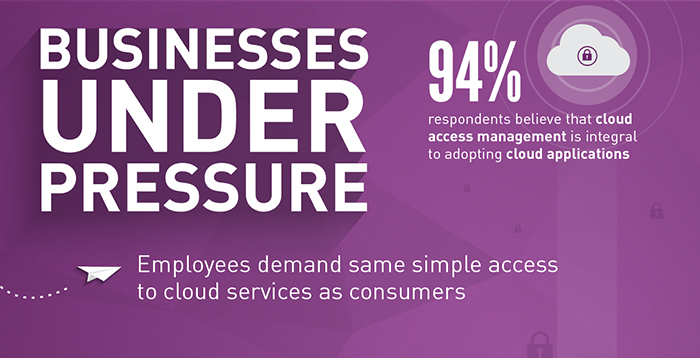
Saudi IT professionals want same simple access to cloud applications as consumers, finds Gemalto
New research from Gemalto, the world leader in digital security, found that the proliferation of cloud applications and use of a disparate range of devices within businesses has led to nearly two-thirds (80%) of Saudi IT leaders admitting that their security teams are considering implementing consumer-grade access to cloud services for employees. Surveying more than 1,000 IT decision makers globally, Gemalto’s 2018 Identity and Access Management Index revealed that the majority of Saudi respondents (72%) believe that the authentication methods they implement in their businesses are not as good compared to those found on popular sites including Amazon and Facebook.
With a growing number of cloud apps in use, more employees working remotely and pressure mounting to make authentication stronger while ensuring ease of use, IT decision makers are keen to ‘consumerize’ the login process. In fact, 64% of Saudi IT professionals believe that authentication methods applied in the consumer world can be applied secure access to enterprise resources.
Despite this, 84% of Saudi IT leaders express concern about employees reusing personal credentials for work. This comes as 63% admit that they are still not implementing two-factor authentication to allow access to their network, potentially leaving themselves vulnerable to cyber criminals.
At the same time, there seems to be increasing recognition that new approaches to cloud access can contribute to alleviating these issues. 72% of Saudi respondents believe that cloud access management tools can help simplify the login process for users, while 68% stated that a strong consideration for implementing a cloud access solution is the desire to reduce the threat of large scale breaches. The fact that 72% of Saudi respondents also stated that inefficient cloud identity management would be a key factor in adopting a cloud access management solution, shows that scalability and management overheads are also of high concern to IT professionals.
“These findings clearly show that IT managers are struggling to balance the need for a simple and easy login experience with security,” said Ahmad Abdullah, Country Manager Saudi Arabia and Levant for enterprise and cybersecurity, Gemalto “While there is a need to make things easier for employees, there is a fine line to be walked. IT and business line managers would do best to figure out the risks and sensitivities associated with the various applications used in their organizations and then use access management policies to manage risk and apply the appropriate authentication method. In this way, they can ensure a convenient login experience for their users, while still maintaining access security.”
Cloud application security remains a focus
With the growth in remote working, the cloud and secure access to applications have become important for organizations. As a result, almost all (96%) Saudi respondents believe that cloud access management is integral to adopting cloud applications. In fact, nine in 10 also feel that ineffective cloud access management can lead to issues for their company, such as security (44%), increased operational overheads and IT costs (56%) and IT staff’s time being used less efficiently (52%).
“The rapid increase of cloud apps has brought organizations lots of benefits, but also caused a high degree of fragmentation in their ability to manage access security across numerous cloud and on-premises applications,” continued Abdullah. Without effective access management tools in place, this is liable to lead to higher risk of breach, a lack of visibility into access events, regulatory oversite - and hamper organizations’ ability to scale in the cloud.”


























